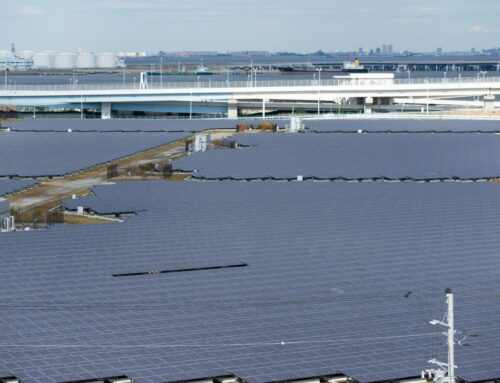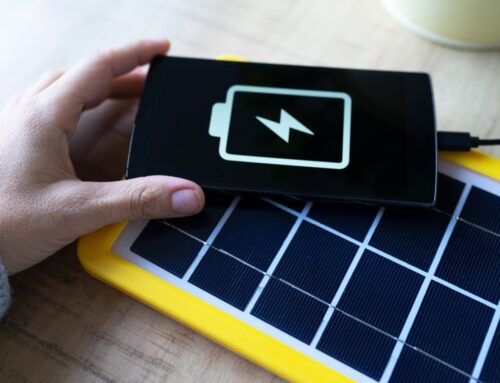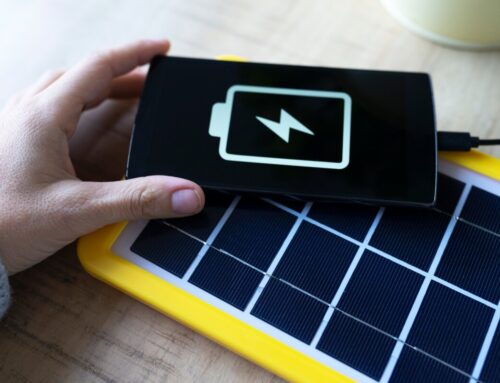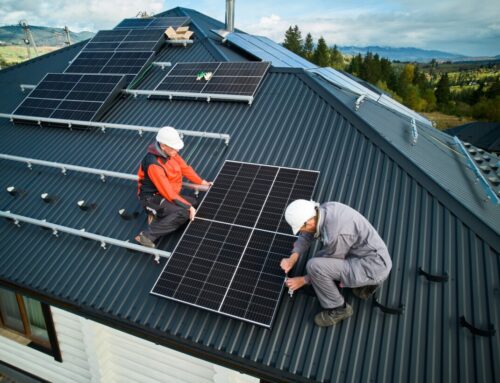Solar: Most Cost Effective Energy Source
Why Solar Power Tops the List as the Most Cost Effective Energy Source
In today’s world, finding the most cost effective energy source is crucial for both environmental sustainability and economic efficiency. As energy demands rise, solar power emerges as a leading contender, offering a sustainable solution that significantly reduces electricity costs over time. But what makes solar power the most cost effective energy source?
Long-term Savings
Solar power systems require an initial investment, but the long-term savings are substantial. Once installed, solar panels harness the sun’s energy, drastically reducing or even eliminating monthly electricity bills. This financial relief is a key reason why many homeowners and businesses are turning to solar as their primary energy source.
Environmental Impact
- Renewable and Abundant: Solar energy is renewable and abundant, unlike fossil fuels which are finite and environmentally damaging.
- Reduces Carbon Footprint: By switching to solar, individuals and companies can significantly reduce their carbon footprint, contributing to a healthier planet.
Government Incentives
Governments worldwide are encouraging the adoption of solar energy through various incentives. Tax credits, rebates, and grants make the transition to solar more affordable, enhancing its appeal as the most cost effective energy source. These incentives not only lower the initial costs but also accelerate the return on investment, making solar power an attractive option for many.
How Wind Energy Compares in Cost Efficiency to Other Sources
In today’s world, finding the most cost effective energy source is crucial for both economic and environmental sustainability. As energy demands rise, understanding how different sources stack up in terms of cost efficiency is essential. Wind energy, in particular, has gained attention for its potential to provide affordable power. But how does it really compare to other energy sources?
Wind Energy: A Competitive Contender
Wind energy stands out due to its declining costs over the years. Technological advancements have made wind turbines more efficient, reducing the cost per kilowatt-hour. This positions wind as a strong contender among renewable options, often rivaling traditional fossil fuels in terms of cost efficiency.
Comparing Costs: Wind vs. Fossil Fuels
- Initial Investment: Wind energy requires significant upfront investment for infrastructure, but operational costs are relatively low.
- Long-term Savings: Unlike fossil fuels, wind energy does not incur fuel costs, leading to substantial savings over time.
Wind Energy vs. Solar and Hydropower
- Solar Energy: While solar has also seen cost reductions, wind energy often offers a lower cost per kilowatt-hour in areas with consistent wind.
- Hydropower: Although hydropower is efficient, its geographical limitations make wind a more versatile option in many regions.
In conclusion, wind energy emerges as a highly cost-effective energy source, particularly when considering long-term savings and environmental benefits. As technology continues to advance, wind energy’s role in the global energy landscape is likely to grow, offering a sustainable and economically viable solution.
Is Hydroelectric Power the Most Cost Effective Energy Source for Your Region?
In today’s world, finding the most cost effective energy source is crucial for both economic and environmental sustainability. As energy demands rise, communities are seeking solutions that not only reduce costs but also minimize environmental impact. Hydroelectric power often emerges as a contender in this quest, but is it the right choice for your region? Let’s explore its potential benefits and limitations.
Is Hydroelectric Power the Most Cost Effective Energy Source for Your Region?
Hydroelectric power is renowned for its ability to generate electricity at a low cost once infrastructure is in place. This renewable energy source harnesses the power of flowing water, making it both sustainable and efficient. However, its feasibility largely depends on geographical factors, such as the availability of rivers or large water bodies. Advantages of Hydroelectric Power
- Low Operating Costs: Once a hydroelectric plant is constructed, the operational costs are minimal compared to fossil fuels.
- Renewable and Clean: It produces no direct emissions, making it environmentally friendly.
- Reliable and Stable: Provides a consistent power supply, unaffected by weather changes unlike solar or wind energy. Considerations for Implementation
- Geographical Limitations: Not all regions have the necessary water resources or topography.
- Initial Investment: High upfront costs for dam and plant construction can be a barrier.
- Environmental Impact: Potential disruption to local ecosystems and communities must be evaluated. Ultimately, determining whether hydroelectric power is the most cost effective energy source for your region requires a careful assessment of local resources and needs. While it offers numerous benefits, the initial investment and geographical prerequisites may limit its applicability. Engaging with local energy experts can provide insights tailored to your specific circumstances.
The Role of Government Incentives in Making Renewable Energy More Affordable
In the quest for the most cost-effective energy source, renewable energy stands out as a promising contender. However, the initial costs can be a barrier for many. This is where government incentives play a crucial role, making renewable energy more accessible and affordable for everyone.
Tax Credits and Rebates
- Federal Tax Credits: These reduce the cost of solar panels and wind turbines, making them more affordable for homeowners and businesses.
- State Rebates: Many states offer additional rebates that further lower the upfront costs of renewable energy installations.
Grants and Subsidies
Government grants and subsidies are pivotal in reducing the financial burden of transitioning to renewable energy. These funds support research and development, helping to drive innovation and efficiency in renewable technologies.
Net Metering Programs
Net metering allows consumers to sell excess energy back to the grid, providing a financial return on their investment in renewable energy systems. This not only makes renewable energy more affordable but also encourages more people to adopt these technologies.
By leveraging these incentives, governments can significantly lower the barriers to entry for renewable energy, positioning it as the most cost-effective energy source for the future.

Curious about solar? Let us help you discover how solar energy can revolutionize your home and save you money. Request Your Free Solar Estimate at SOLAR ENERGY
Comparing the Long-Term Savings of Geothermal Energy
In the quest for the most cost-effective energy source, geothermal energy stands out as a compelling option. As energy costs continue to rise, homeowners and businesses are increasingly looking for sustainable solutions that offer long-term savings. Geothermal energy, with its ability to harness the Earth’s natural heat, provides a reliable and efficient alternative to traditional energy sources.
Understanding Geothermal Energy
Geothermal energy taps into the Earth’s internal heat, offering a consistent and renewable energy supply. Unlike solar or wind energy, which depend on weather conditions, geothermal energy provides a stable output, making it a dependable choice for continuous energy needs. This reliability translates into significant cost savings over time.
- Consistent Energy Supply: Unlike other renewable sources, geothermal energy is not weather-dependent.
- Reduced Energy Bills: By utilizing the Earth’s heat, geothermal systems can significantly lower heating and cooling costs.
Long-Term Financial Benefits
Investing in geothermal energy systems may require a higher initial cost, but the long-term savings are substantial. Over time, reduced energy bills and minimal maintenance costs contribute to its reputation as the most cost-effective energy source. Additionally, many regions offer incentives and tax credits to offset installation costs, enhancing its financial appeal.
- Low Maintenance Costs: Geothermal systems have fewer moving parts, reducing the need for repairs.
- Incentives and Tax Credits: Government programs can help reduce the upfront investment.
By choosing geothermal energy, individuals and businesses not only contribute to a sustainable future but also enjoy the financial benefits of one of the most cost-effective energy sources available today.
How Technological Advances Are Reducing the Cost of Renewable Energy
In today’s rapidly evolving energy landscape, finding the most cost-effective energy source is crucial for both economic and environmental sustainability. Renewable energy, once considered expensive, is now becoming more affordable due to technological advancements. This shift not only makes renewable energy more accessible but also positions it as a leading contender in the race for the most cost-effective energy source.
Innovations Driving Down Costs
- Solar Panel Efficiency: Advances in photovoltaic technology have significantly increased the efficiency of solar panels, allowing them to generate more electricity from the same amount of sunlight.
- Wind Turbine Design: Modern wind turbines are larger and more efficient, capturing more wind energy and reducing the cost per kilowatt-hour.
Economies of Scale
As renewable energy technologies become more widespread, production costs decrease. This is due to economies of scale, where increased production leads to lower costs per unit. This trend is evident in the solar industry, where mass production has slashed prices, making solar power a viable and cost-effective energy source for many.
Government Incentives and Policies
Government policies and incentives play a pivotal role in reducing the cost of renewable energy. Tax credits, subsidies, and favorable regulations encourage investment and innovation, further driving down costs and making renewable energy more competitive with traditional energy sources.
Can Biomass Compete as a Cost Effective Energy Source?
In today’s rapidly evolving energy landscape, finding the most cost effective energy source is crucial for both economic stability and environmental sustainability. As we explore alternatives to fossil fuels, biomass emerges as a promising contender. But can it truly compete in terms of cost-effectiveness? Let’s delve into the potential of biomass as a viable energy source.
Understanding Biomass Energy
Biomass energy is derived from organic materials such as plant and animal waste. It is renewable and can be converted into electricity, heat, or biofuels. The process involves burning or fermenting these materials to release energy.
- Renewable and Sustainable: Biomass is abundant and can be replenished, making it a sustainable option.
- Versatile Applications: It can be used for heating, electricity, and as a fuel for vehicles.
Cost-Effectiveness of Biomass
The cost-effectiveness of biomass hinges on several factors:
- Resource Availability: Regions with abundant organic waste can produce biomass energy more cheaply.
- Technology and Infrastructure: Advances in technology can reduce production costs, making biomass more competitive.
Transitioning to biomass could offer a sustainable and cost-effective energy solution, especially in areas rich in organic resources. As technology advances, biomass might just become one of the most cost effective energy sources available.
Understanding the Hidden Costs of Traditional Energy Sources
In today’s rapidly evolving energy landscape, identifying the most cost effective energy source is crucial for both economic and environmental sustainability. Traditional energy sources, such as coal and natural gas, often appear affordable at first glance. However, their hidden costs can significantly impact both consumers and the planet.
Environmental Impact
- Pollution: Traditional energy sources contribute to air and water pollution, leading to health issues and environmental degradation.
- Resource Depletion: The extraction of fossil fuels depletes natural resources, causing long-term ecological harm.
Economic Considerations
- Rising Costs: As resources become scarcer, the cost of extraction and production increases, making these energy sources less viable.
- Infrastructure Maintenance: Aging infrastructure requires constant maintenance, adding to the overall cost.
Transitioning to renewable energy sources not only reduces these hidden costs but also offers a sustainable path forward. By understanding these factors, consumers and policymakers can make informed decisions, ensuring that the most cost effective energy source is chosen for a sustainable future.
How SolarEnergy Can Help You Choose the Most Cost Effective Energy Source
In today’s world, finding the most cost effective energy source is crucial for both economic and environmental reasons. With rising energy costs and increasing awareness of climate change, making informed decisions about energy consumption is more important than ever. SolarEnergy is here to guide you through this process, ensuring you make choices that are both financially and environmentally sound.
Understanding Your Energy Needs
- Assess Your Current Usage: Begin by evaluating your current energy consumption patterns. This helps in identifying areas where you can reduce usage and costs.
- Explore Renewable Options: Consider renewable energy sources like solar or wind, which often offer long-term savings and sustainability.
Comparing Energy Sources
SolarEnergy provides detailed comparisons of various energy sources, highlighting their costs, benefits, and potential savings. By understanding the pros and cons of each option, you can make an informed decision that aligns with your budget and sustainability goals.
Personalized Recommendations
Our platform offers personalized recommendations based on your specific needs and location. By analyzing your energy usage and local energy prices, we help you identify the most cost effective energy source tailored to your situation. Let SolarEnergy be your trusted partner in navigating the complex energy landscape.
Don’t wait to go solar! Thousands of homeowners are saving—join them and start reaping the benefits.
Book Your Free Consultation at SOLAR ENERGY
Explore additional solar solutions at NEW SOLAR QUOTES and discover how it can benefit your home!









